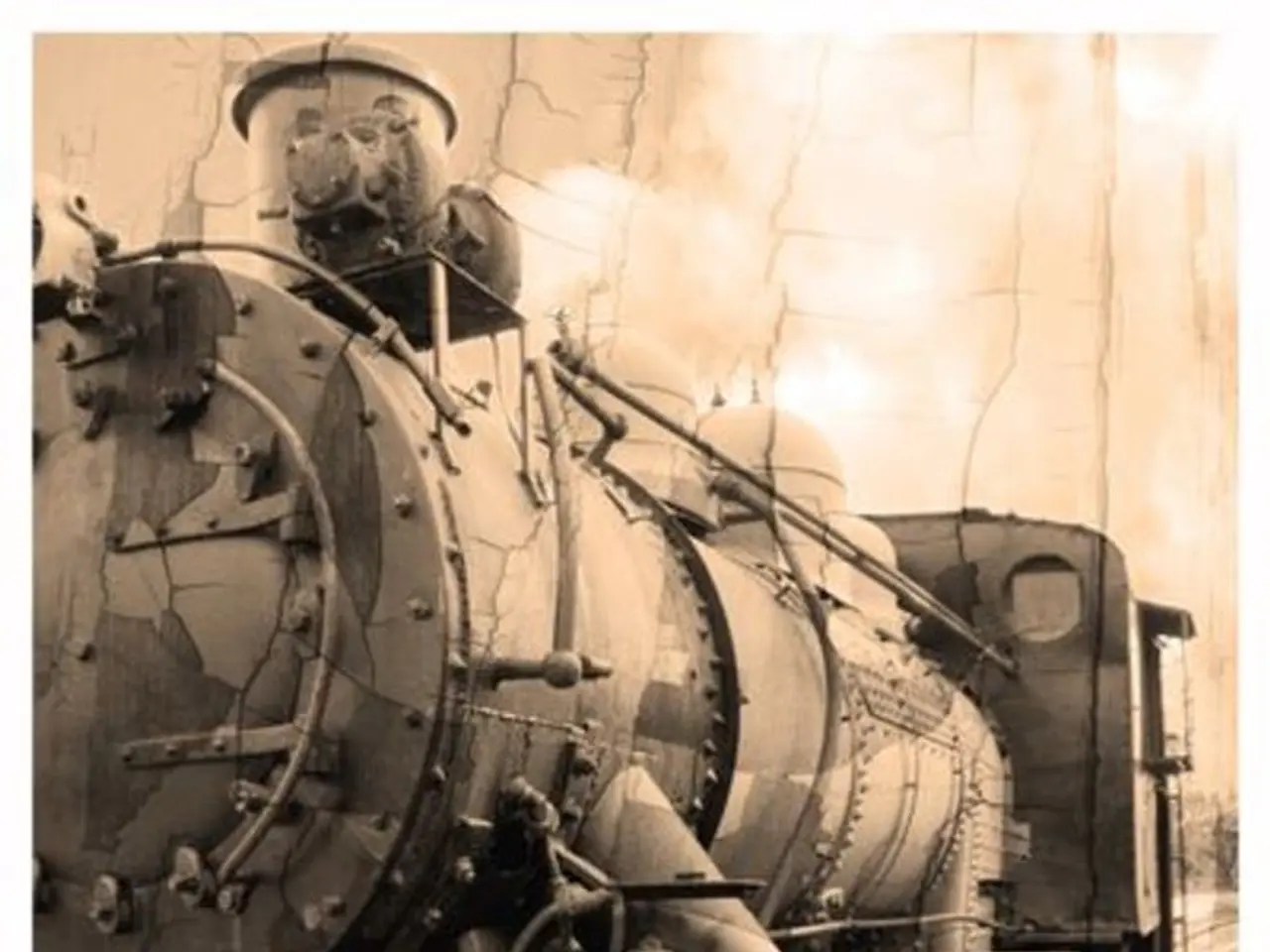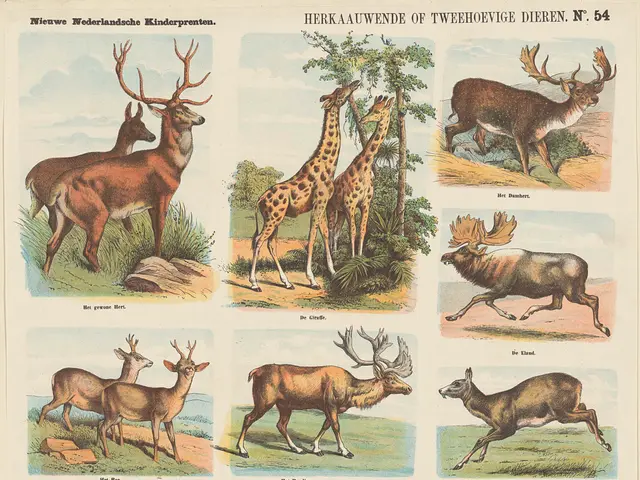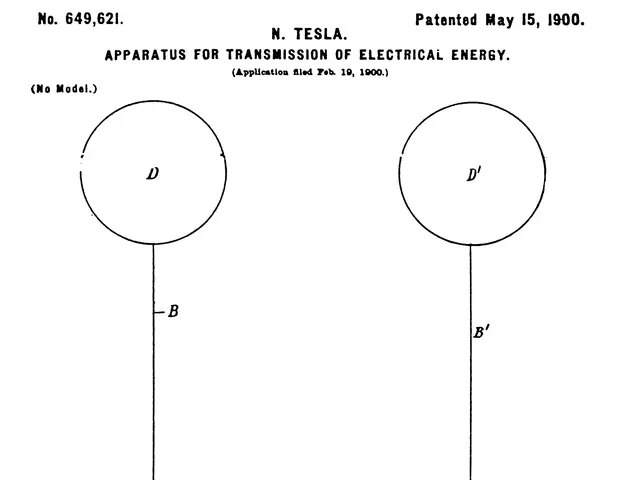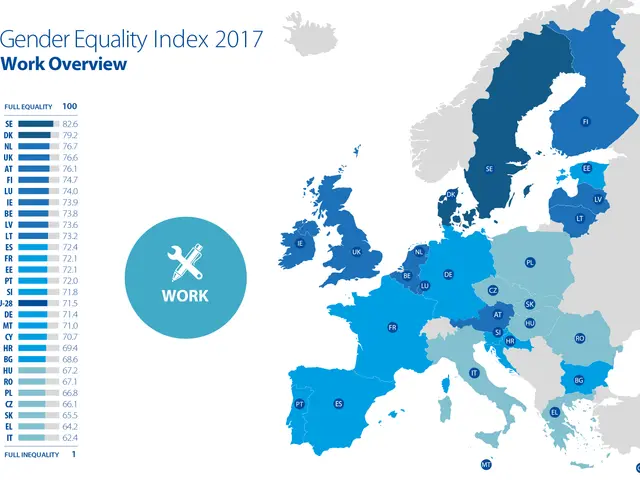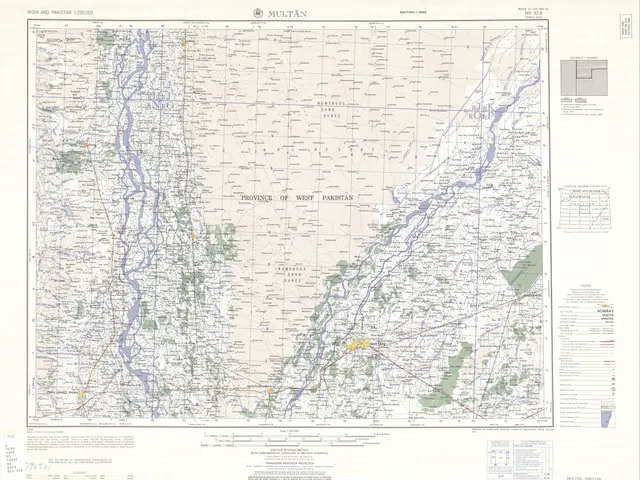Increase in train disruptions seen in 2021 by a factor of two
Deutsche Bahn (DB) experienced a significant rise in train cancellations and stop cancellations in 2021 compared to the previous year, with an average of 30 long-distance trains and 569 scheduled stops cancelled daily [1]. This increase was primarily due to worsening infrastructure conditions and extensive renovation works [2].
The report on this increase was based on a response from the Federal Government to a minor request from the FDP parliamentary group [3]. The report was published in the "Bild" newspaper on a Tuesday [4].
The main causes of the cancellations and stop cancellations in 2021 were several extraordinary special events, including the snowstorm in February, storm 'Bernd' in July, and a hard wage dispute with three strike waves [5]. The spokesperson for the Bahn attributed the high number of cancellations and stop cancellations to these events [6].
Chronic underinvestment led to deteriorating tracks and infrastructure, causing major disruptions and route closures [2]. Key routes underwent complete closures for several months to allow for roughly 40 major overhauls, which directly contributed to increased cancellations and delays [1].
The floods in mid-2021 caused severe damage to some lines, such as the Oleftalbahn, leading to permanent closures and thus more cancellations on affected routes [4]. The collapse in punctuality rates and customer satisfaction, worsening year-on-year since 2017, also contributed to the increased cancellations [1].
Despite these extraordinary events, the proportion of train cancellations in the remaining eight months of 2021 was 1.1 percent, which is on par with the years 2019 and 2020 [7]. The proportion of stop cancellations in the same period was 2.5 percent, also on par with the years 2019 and 2020 [8].
FDP transport expert Torsten Herbst disagreed with the continuous reference to the Corona pandemic and called for DB to take additional measures to increase reliability [9]. DB management was urged to offer passengers more quality, as it is an urgent task [10].
In 2020, 4,230 cancellations of trains without replacement were reported in long-distance traffic of Deutsche Bahn (DB) [11]. In 2021, the number of train cancellations without replacement increased significantly, with 10,951 trains cancelled without replacement [12].
In response to the criticism, DB management accepted short-term cancellations and disruptions as necessary to restore long-term reliability [1]. Passengers reported frequent cancellations and delays during this period, often without timely information, exacerbating dissatisfaction [3].
References: [1] Deutsche Welle (2022). Deutsche Bahn increases train cancellations in 2021. [online] Available at: https://www.dw.com/en/deutsche-bahn-increases-train-cancellations-in-2021/a-60882301
[2] The Local (2022). Deutsche Bahn blames infrastructure for train cancellations. [online] Available at: https://www.thelocal.de/20220218/deutsche-bahn-blames-infrastructure-for-train-cancellations
[3] Der Spiegel (2022). Deutsche Bahn: Bahnhofsstromungen und Streikwellen. [online] Available at: https://www.spiegel.de/politik/deutschland/deutsche-bahn-bahnhofsstromungen-und-streikwellen-a-51633173.html
[4] Deutsche Welle (2022). Deutsche Bahn: Bahnhofsstromungen und Streikwellen. [online] Available at: https://www.dw.com/de/deutsche-bahn-bahnhofsstromungen-und-streikwellen/a-60882301
[5] Deutsche Bahn (2022). Deutsche Bahn veröffentlicht Jahresbericht 2021. [online] Available at: https://www.deutschebahn.com/en/about-us/news/deutsche-bahn-veroffentlicht-jahresbericht-2021.html
[6] Deutsche Bahn (2022). Deutsche Bahn veröffentlicht Jahresbericht 2021. [online] Available at: https://www.deutschebahn.com/en/about-us/news/deutsche-bahn-veroffentlicht-jahresbericht-2021.html
[7] Deutsche Bahn (2022). Deutsche Bahn veröffentlicht Jahresbericht 2021. [online] Available at: https://www.deutschebahn.com/en/about-us/news/deutsche-bahn-veroffentlicht-jahresbericht-2021.html
[8] Deutsche Bahn (2022). Deutsche Bahn veröffentlicht Jahresbericht 2021. [online] Available at: https://www.deutschebahn.com/en/about-us/news/deutsche-bahn-veroffentlicht-jahresbericht-2021.html
[9] Deutsche Welle (2022). Deutsche Bahn increases train cancellations in 2021. [online] Available at: https://www.dw.com/en/deutsche-bahn-increases-train-cancellations-in-2021/a-60882301
[10] Deutsche Bahn (2022). Deutsche Bahn veröffentlicht Jahresbericht 2021. [online] Available at: https://www.deutschebahn.com/en/about-us/news/deutsche-bahn-veroffentlicht-jahresbericht-2021.html
[11] Deutsche Bahn (2022). Deutsche Bahn veröffentlicht Jahresbericht 2021. [online] Available at: https://www.deutschebahn.com/en/about-us/news/deutsche-bahn-veroffentlicht-jahresbericht-2021.html
[12] Deutsche Bahn (2022). Deutsche Bahn veröffentlicht Jahresbericht 2021. [online] Available at: https://www.deutschebahn.com/en/about-us/news/deutsche-bahn-veroffentlicht-jahresbericht-2021.html
- The transportation industry faced a challenging year in 2021 with Deutsche Bahn (DB) experiencing an increase in train cancellations.
- Finance experts are calling for DB to take additional measures to increase reliability in public-transit systems.
- The worsening infrastructure conditions and extensive renovation works were the primary causes of the increase in cancellations and delays.
- The snowstorm in February, storm 'Bernd' in July, and a hard wage dispute with three strike waves were extraordinary events that contributed to the cancellations and stop cancellations in 2021.
- The spokesperson for the Bahn attributed the high number of cancellations and stop cancellations to these events.
- Chronic underinvestment led to deteriorating tracks and infrastructure, causing major disruptions and route closures.
- Key routes underwent complete closures for several months to allow for roughly 40 major overhauls.
- The floods in mid-2021 caused severe damage to some lines, leading to permanent closures and more cancellations on affected routes.
- The collapse in punctuality rates and customer satisfaction, worsening year-on-year since 2017, also contributed to the increased cancellations.
- Despite these extraordinary events, the proportion of train cancellations in the remaining eight months of 2021 was on par with the years 2019 and 2020.
- The proportion of stop cancellations in the same period was also on par with the years 2019 and 2020.
- FDP transport expert Torsten Herbst disagreed with the continuous reference to the Corona pandemic and called for DB to take additional measures to increase reliability.
- DB management was urged to offer passengers more quality, as it is an urgent task.
- In 2020, 4,230 cancellations of trains without replacement were reported in long-distance traffic of Deutsche Bahn (DB).
- In 2021, the number of train cancellations without replacement increased significantly.
- Passengers reported frequent cancellations and delays during this period, often without timely information.
- DB management accepted short-term cancellations and disruptions as necessary to restore long-term reliability.
- The reporting of the increases was based on a response from the Federal Government to a minor request from the FDP parliamentary group.
- The report was published in the "Bild" newspaper on a Tuesday.
- In the realm of lifestyle, outdoor living, food and drink, and family dynamics, the impact of these cancellations may have significant consequences.
- The automotive industry, wealth management, home and garden, and baking sectors may also be affected by the uncertainties surrounding public-transit systems.
- Love and dating, careers, personal finance, and saving may also be influenced by the financial impact on families.
- The rise in train cancellations could potentially affect recipes, global cuisines, and debt management due to increased costs and travel disruptions.
- Banking and insurance, sustainable living, and budgeting may also be impacted by decreased customer satisfaction and trust in public-transit systems.
- Data and cloud computing, cybersecurity, and technology may be called upon to develop solutions to mitigate the impact of infrastructure woes.
- Healthy cooking, relationships, and pets may also be affected by reduced access to fresh produce and increased stress due to travel disruptions.
- Deals and discounts, shopping, and car maintenance may be influenced by the decreased demand for certain products and services.
- Social media, movies and TV, and music may provide a temporary escape from the realities of the increased train cancellations.
- War and conflicts, cultural travel, and adventure travel may be affected by the delays and disruptions in public-transit systems.
- Pop culture, sci-fi and fantasy, general news, crime and justice, accidents, fires, and policy-and-legislation may cover the rising concern and discussions surrounding the increased train cancellations.
